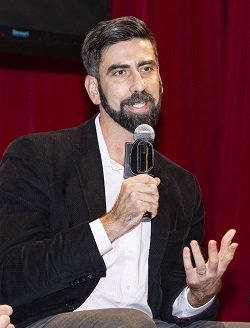
QUANTITATIVE RESEARCH METHODS WORKSHOP/LEITNER POLITICAL ECONOMY SEMINAR
Abstract: After wars, international nongovernmental organizations (INGOs) often service basic needs like health and education. Ideally, such service provision would eventually be handed over to an accountable government. But cases like Afghanistan show that handover can fail. Should the ideal of handover be abandoned, or are there strategies to make it realistic? To address this question, we test a community-based model for administering primary education in Afghanistan. We use a randomized equivalence trial that estimates effects relative to what INGOs achieve. The model succeeds in maintaining children’s learning and household satisfaction. It does not increase gender or ethnic bias nor does it result in resource misappropriation. However, survey results from a one-year follow-up with community leaders suggests that long-term viability of the model depends on higher level institutional supports being in place. Communities can take charge in administering basic services after INGOs withdraw, but only when higher level institutions are stable.
Cyrus Samii is Associate Professor in the Wilf Family Department of Politics of New York University and Executive Director of the Evidence in Governance and Politics (EGAP) network. He writes and teaches on quantitative social science methodology, with an emphasis on causal inference. He is a prominent expert on the design of quantitative field research and social science randomized controlled trials. His applied research focuses on various problems for government in contexts affected by war and conflict, and then studies strategies for addressing these problems. He has designed and carried out field studies in sites across Africa, Asia, and Latin America. This research has been conducted in collaboration with partners from various international agencies, including the World Bank, United Nations, US Agency for International Development, UK Department for International Development, and Danish International Aid Agency, as well as governments, non-governmental, and civil society organizations in the respective countries. His work has appeared in peer-reviewed journals in political science, economics, and statistics. He received his PhD in political science from Columbia University, a master’s in international affairs from the Columbia University School of International and Public Affairs, and BA from Tufts University.
This workshop is open to the Yale community. To receive announcements and invitations to attend, please subscribe at https://csap.yale.edu/quantitative-research-methods-workshop.
This workshop is cosponsored with the Leitner Political Economy Seminar.
This series is sponsored by the ISPS Center for the Study of American Politics and The Whitney and Betty MacMillan Center for International and Area Studies at Yale with support from the Edward J. and Dorothy Clarke Kempf Fund.
